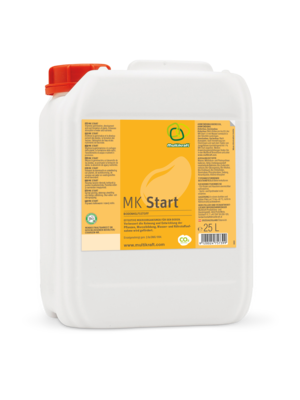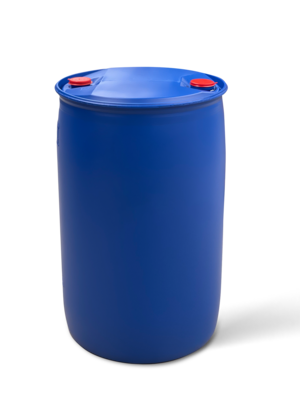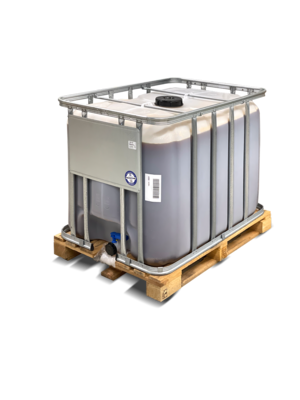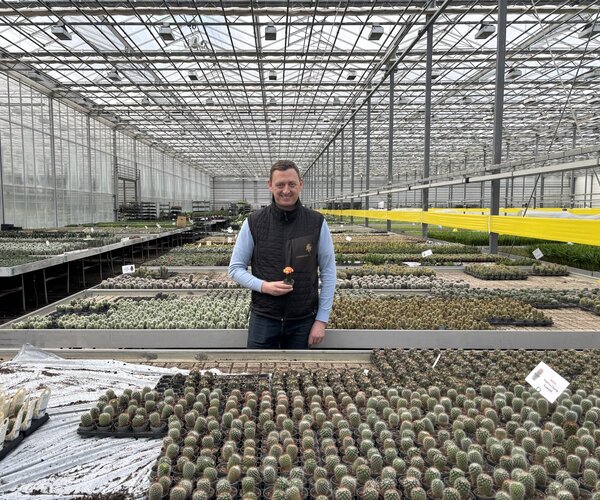
The plants stand tightly in rank and file
MK Start is used for potting at the Lundager nursery in Denmark. The loss rate of 0 % speaks for compact, strong plants that are able to defend themselves against fungal diseases.
The Lundager nursery in Odense is one of the best addresses for small ornamental plants in Denmark. Ove and his wife Olga run the business, which is constantly growing and supplies garden centres throughout Europe with its products. Preventive plant health is particularly important in glasshouses, because otherwise the plants can hardly protect themselves against fungal infestation and other diseases.

The special thing about the Danish nursery Lundager is that it mainly cultivates plants in pots with a diameter of six to twelve centimetres. Around 500 different species and varieties are cultivated in this way. The company has long since become the market leader for miniature ornamental plants in Denmark. Following the takeover of competitors, the company has gradually increased its area. The ornamental plants thrive in greenhouses totalling 60,000 m2 at seven locations. There is space for around 250 plants per square metre. Around half a million ornamental plants leave the nursery every week.
The special thing about the Danish nursery Lundager is that it mainly cultivates plants in pots with a diameter of six to twelve centimetres. Around 500 different species and varieties are cultivated in this way. The company has long since become the market leader for miniature ornamental plants in Denmark. Following the takeover of competitors, the company has gradually increased its area. The ornamental plants thrive in greenhouses totalling 60,000 m2 at seven locations. There is space for around 250 plants per square metre. Around half a million ornamental plants leave the nursery every week.
A stubborn fungus
During one of the numerous acquisitions, there was a large tank with the Multikraft company logo on the property. ‘Up until that point, we hadn't seriously considered microorganisms,’ says Ove. ‘The newly acquired employees raved about the tank. The more we learnt about probiotic microorganisms, the more curious we became.’ This was mainly because a persistent fungus was attacking the stems of the plants at some locations. ‘The roots of some plants looked downright rotten. We couldn't get many of them through and suffered huge losses.’ The problem could not be recognised in advance because this fungus rages from the inside. Once the stems are black and limp, it is too late to intervene. Pesticides were never an option for the Lunager nursery. ‘We no longer use pesticides and try to grow the plants as organically as possible. On the other hand, we realised that we had to do something about the advancing fungal infestation.’
Pretty tight
MK Start was integrated very carefully. Ove explains: ‘Just one shot before we put the plant in the pot and one shot afterwards.’ Despite this, the result was an extremely improved fine root formation: ‘The ornamental plants stood as tight and strong as soldiers next to each other. The leaves were a vibrant colour and you could see the vitality in every single plant. We have rarely had such beautiful crops before,’ says the gardener, referring to the drop in the loss rate from 25 to a sensational zero per cent.
MK Start was integrated very carefully. Ove explains: ‘Just one shot before we put the plant in the pot and one shot afterwards.’ Despite this, the result was an extremely improved fine root formation: ‘The ornamental plants stood as tight and strong as soldiers next to each other. The leaves were a vibrant colour and you could see the vitality in every single plant. We have rarely had such beautiful crops before,’ says the gardener, referring to the drop in the loss rate from 25 to a sensational zero per cent.
Sensation in the glass house
It is a speciality of ornamental plant cultivation that the plants are kept compact and do not exceed a certain size. In tropical countries, where these plants grow outdoors under the sun, this so-called ‘inhibiting effect’ is achieved through UV radiation. As this is lacking in glasshouses, chemicals usually have to be used to achieve the same effect. In ornamental plant cultivation, there has hardly been an alternative solution to date. However, observations now suggest that probiotic microorganisms promote this inhibitory effect. ‘The roots are stronger and can absorb much more nutrients from the environment. As a result, we have visually more beautiful plants, but also stronger plants that can defend themselves against fungi and other diseases. It used to be difficult for us to always deliver consistent quality,’ says Ove. This problem is now a thing of the past.

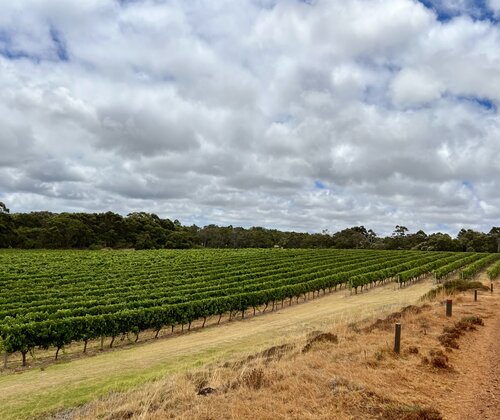
Conor O'Brien, CEO of Multikraft Probiotics Australia, shares impressive results: The use of Multikraft's biostimulants has resulted in yield increases of up to 35 per cent. This innovation not only improved quality, but also enabled a drastic reduction in the use of fungicides and pesticides on the cultivation areas.
Multikraft has been represented in Australia since 2014. Conor O'Brien is particularly proud of the successful development in Margaret River in the south-west of Western Australia - one of the youngest wine regions in the world, which has achieved international recognition in record time. Multikraft looks after a large number of winegrowers there, including Cherubino Vineyards, Australia's most award-winning winery.
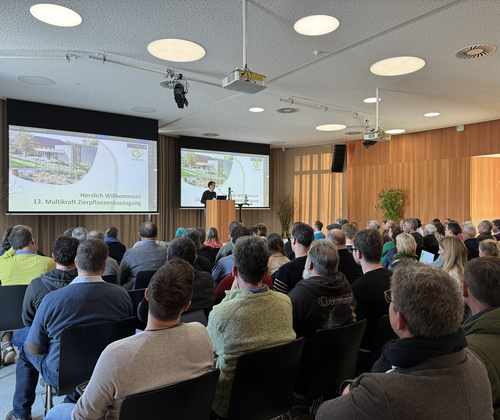
Sustainable plant fortification, peat-free substrates, the multi-weed system in viticulture and many other field reports and experiments were presented at the Ornamental Plants & Vegetables Conference 2024. Gardeners shared their practical experience in the use of plant strengtheners, which enable pesticide reduction through regular use. Frank Korting from DLR Rhineland-Palatinate reported on his trial results on the multi-weed system using the cold fog method.
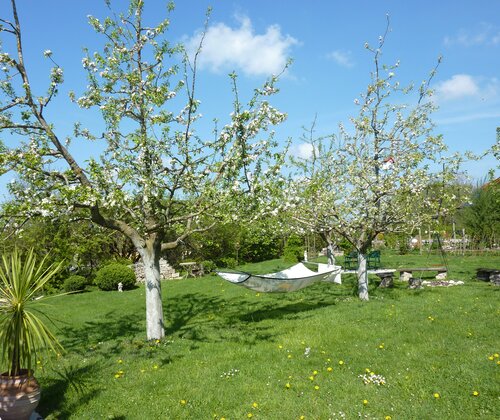
Johannes Lenzenweger lives with his partner in a converted farm on a plot of about 3,700 m² in Straßwalchen in Salzburg. On the wall of the house hang the plaques "Life raft for biodiversity" and one from "Nature in the garden". Both certificates describe well what his garden is all about. The trained fruit tree keeper cares for his fruit trees with love and, for about twenty years, also with Effective Microorganisms.

